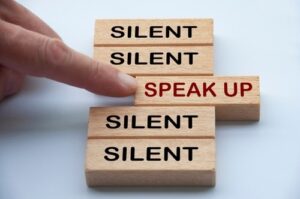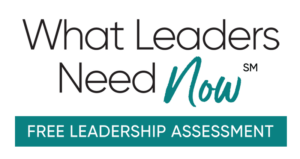Many are talking about “getting back to normal.” Regardless of what side of the debate you are on – open businesses and workplaces now or wait – going back is not an option. We can’t return to “normal” because we are not who we were when we left.
The word “emergence” has been on my mind all weekend. A simple definition is “the process of coming into view or becoming exposed after being concealed.” A more practical meaning is the principle of emergence in systems theory. There, emergence occurs when an entity is observed to have properties its parts do not have on their own. Team behavior and the formation of organizational culture are examples. Where I live on the central coast of California, there are complex factors that determine our weather, hour by hour. At any given time, the wind patterns and inland temperatures determine how the moisture from the sea will make its way through coastal mountains. The emergent fog or sun is often a collective surprise, arising from changes in various factors.
Interestingly, the word “emergency” comes from Latin emergere and first meant “unforeseen occurrence.” It is something that appears unexpectedly. Our work systems and the people who give them life have experienced an emergency. Our organizations have been fundamentally changed, because the parts of those systems – people and processes, have changed. We can’t return to the way things were because that way no longer exists.
Along with many of like mind, I am compelled to help leaders re-enter the workplace aware of this new vantage point, with a new lens. It is the most purposeful work we can do. Whether you were ever physically “away” or not, you will re-enter. What will emerge? What will come into plain view?
Observing my husband and myself, as well as clients, colleagues and friends over the last six weeks, I have seen the deepest and truest parts of us emerge. Some are things we “like” and value about ourselves – a kind, giving nature or a powerful ability to mobilize and engage others. Other aspects are those we think of as our shadow side, our work-in-progress. I have talked to so many people who shared their self-proclaimed inadequacies. One colleague (whose parenting I admire from afar) admitted to being unable to juggle work and home schooling one morning. The result was that one child had soda and candy for breakfast, and the other gave herself a haircut. Some leaders are having extreme reactions to feedback. What would have been difficult messages to hear and process at a “normal” time, now scream at them, leading to downward spiral of shame. The isolation has brought some of us face-to-face with ourselves. And that is a very good thing.
Emotional intelligence is highlighted. Self-awareness has become an issue of integrity, and awareness of others’ needs has become an issue of kindness. Am I who I really am at work, or do I pretend to be someone others expect me to be? Am I enough as I am, or do I seek validation to fill a bottomless cup? Do I display empathy and seek to understand, or do I listen to respond? Do I seek to be right – or to be kind?
Kindness. That is one thing that can emerge, if only we can reframe our view of what kindness is. It is not soft or weak. Kindness takes courage and strength, and these are the qualities beckoning leaders right now.
A prerequisite to team trust is the act of extending the benefit of the doubt. It is easy to let our unconscious biases play out. It takes strength to consider what positive motivation another might have for their views or actions and begin to open the door to new ways others can contribute. Team cohesiveness is dependent on a willingness to share and hear meaningful feedback. It takes courage to give candid feedback. Leaders who withhold it or deflect it are not kind – they are cowardly.
Of course, there has been a range of reactions to the stress of constraints on work and life, and the fears for our physical and economic safety. Not everyone has experienced a dark night of the soul. But everyone will emerge transformed. We have all been touched by this terrible experience.
What part of you has emerged that you will bring into your future life and work? Who are you that you will become more fully? What do you have to give to the people you lead, the clients you serve or the community you belong to? Perhaps this moment of silence has granted you time to answer these questions. Perhaps the stress of it all has impeded any self-reflection, and you will live your way into the answers over the coming months. In either case, be deliberate about re-entry. If you envision the world you wish to inhabit, you just might create it. It’s what leaders do.














